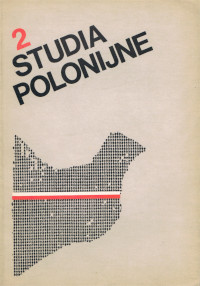Emigration and the Problems of Pastoral Care. Cracow Consistorial Questionnaires of 1907 and 1913
Main Article Content
Abstract
The problems of emigrant labourers from Galicia was the treme of several dissertations and many discussions in 1880-1914 and later. While numerous historical research works were written on this subject, from the point of view of the history of the Church this issue still has not been directly dealt with. Only very few monographs or memoirs mentioned the role of the Polish clergy among the emigrants. It was only after many years of arduous work, especially in the beginnings of massive emigration, that the Polish pastorship developed to such an extent that now almost all Polonial posts are within their reach. The article shows, in a more detailed way, the problem of emigrant labourers from the Cracow diocese in the early 20th century, with special stress on the pastoral care for emigrants. At that time the Polish clergy started to organize, more systematically and efficiently, the pastoral care for massive Polish emigration populations in the United States, Canada, France, Denmark and for smaller Polish populations of other countries. Emigration from the Cracow diocese was extremely large, enveloping almost each parish. The main causes mentioned by the emigrants were: unemployment, overpopulated villages, underdeveloped industry. According to calculations based on these questionnaires, in that period emigrants from the Cracow diocese totalled 43,541. Thus emigration was a great problem both for the Church and the Cracow diocese. Many reports testify that contacts maintained by the pastors with their late parishioners were lively and fruitful: instructions were given, leaders of particular groups were appointed, etc. It must be stressed that the care of the Cracow diocese clergy did not cease with the moment the emigrants were leaving. The priests strove to keep possibly regular contacts with their emigrant-parishioners, though mainly by correspondence. Instead, religious priests (missionaries, Jesuits, Resurrectionists (zmartwychwstańcy), Piarists, Divine Word Missionaries (werbiści), Franciscans) were the regular pastors of the emigrants. The diocesan clergy went abroad only during their summer holidays. Instances of the initiative of the Cracow clergy for the welfare of the emigrants were so numerous that their fuller description here is impossible. We can only mention church building, founding new parishes, establishing parochial, schools, and pastoral care.
-In the period when the earning emigration was becoming more and more massive, various organizations began to emerge (both on the initiative of the lay Catholics and of the clergy) whose goal was to protect and support the emigrants, in various ways. Religious confraternities were the first to take, directly or indirectly, protection over emigrants. In Galicia the Polish Emigrational Association (PTE for Polskie Towarzystwo Emigracyjne) carried a lively socio-cultural and national activity. One must emphasise that the work of various organizations friendly to Poles was for the latter of great importance.

